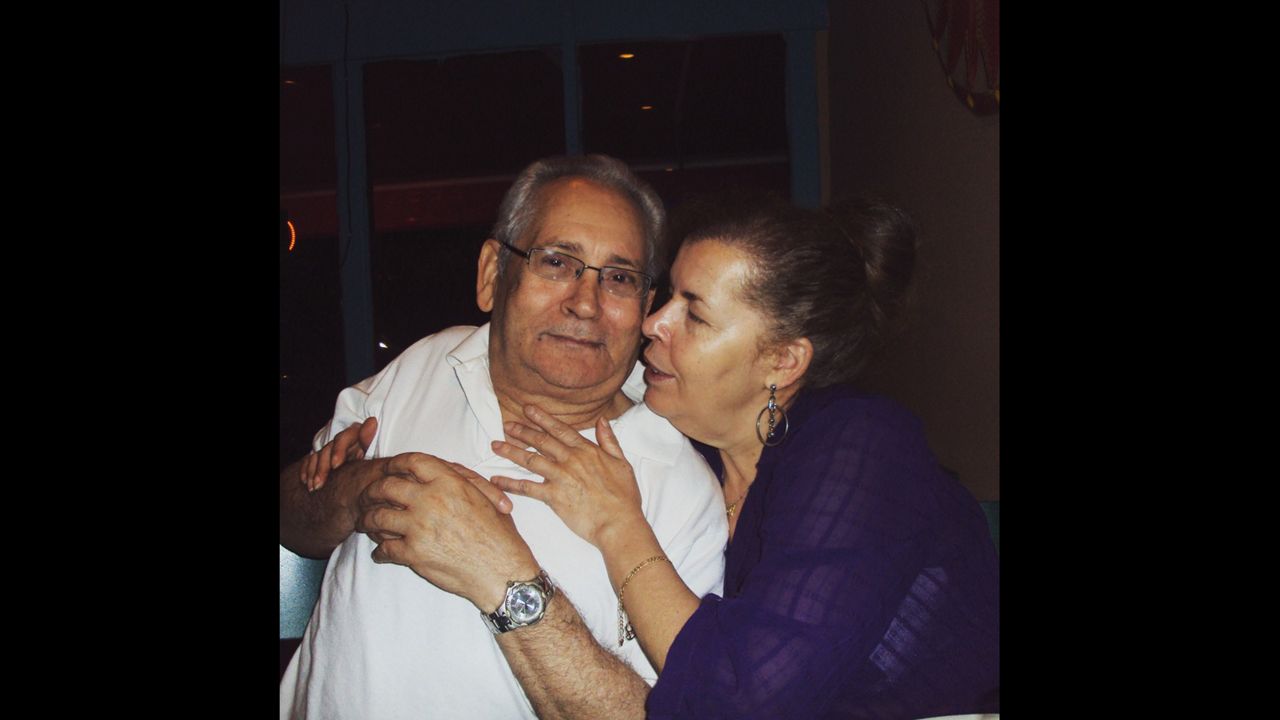Thelma Estevez was in her mid-30s when she took a big leap of faith, leaving her home in the Dominican Republic for a new life in New York City. She found a home in West Harlem and a job as a hair stylist. It wouldn’t be long before her life changed again.
“She came into my dad’s electronics store to buy a television,” her only son, Jose, said. “That was it.”
Thelma and Candido married and made their home on 135th Street and Broadway as Candido grew his electronics business. Anyone who saw them knew just how much they loved each other.
“They were a beautiful couple,” Jose Estevez said. “They were affectionate, optimistic, always in a good mood. My wife and I aspire to be them.
Estevez said it was an idyllic life, filled with love and music.
“My mom enjoyed music a lot,” he said. “And so did dad. Mom loved to sing and listen to music. My dad loved listening to classical music. I learned to play the piano from music dad played.”
He remembers trips to Rye Playland and Disney World, but the times that were the most precious were spent in his dad’s shop.
“My dad was an entrepreneur,” he said. “He had his business and my mom would always go down to the store to help him out. When I was 16 or 17, I’d go to the store with them and spend the day with my parents.”
His mom turned work into a lesson, of sorts.
“My mom would sort out the cassette tapes and CDs,” he said. “She would listen to the music with me and say, ‘this is the latest artist, let’s listen to it together.' Those are very vivid moments for me”.
Both Thelma and Candido were looking forward to their first grandchild, but, sadly, Candido died before Ethan was born, nine years ago.
“My mom was so happy when Ethan was born," Jose Estevez said. “Her smile was so radiant. He was born a day after her birthday. When she held him for the first time, her smile was unbelievable. She absolutely adored him.”
But Jose and his wife, Alexandra, began to see that something wasn’t quite right with Thelma. She was diagnosed with dementia, which soon turned to Alzheimer’s. She was only in her late 60s.
Estevez lived in New Jersey but would travel into the city nearly every day to see his mom, to make sure she had food, that she was feeling well, to make sure her home health aide was caring for her.
“I was her only son,” he said.
But her Alzheimer’s was progressing. She was having trouble with her balance, and, when she had a fall, Jose Estevez knew it was time to put his mother into an assisted living facility.
“It got to a point where it was so much on me, physically,” he said. “It was taking a toll on my family.”
Thelma was admitted to the Isabella Geriatric Center in Upper Manhattan, where COVID took a terrible toll. Nearly 100 patients would die of coronavirus there.
“She was there for two years, and she was in a good place,” he said. “I would visit a couple of times a week, and my wife and son would spend time there with her.”
But when the virus was on the way, he was told no one would be allowed to visit anymore.
“I went to see her the day before the shutdown,” he said. “I spent time by her bedside and chatted about whatever she wanted to chat about in her state of mind. I was very concerned going into the pandemic about the impact it would have on her and other folks in nursing homes. With workers traveling to and from home I knew it would be a vulnerable place. I thought it might hit home. I hoped it wouldn’t.”
A month later, he got the call he dreaded: his mom had developed a fever.
“It took a week to lose her,” he said. “Monday she was a little disoriented. By Friday, they said she was not looking well and was unresponsive. I would know she was OK because, when she’d see my face, she’d say, ‘mijo’, my son. But when we FaceTimed the following Monday, she wasn’t able to respond.
Thelma Estevez died of the coronavirus on April 13. Her son said he will miss the mom who was also his best friend.
“Mom would always take my side,” he said. “If I didn’t want to eat something, dad would always say, you have to. My mom would say, ‘it’s OK’.”
Jose Estevez hopes his mother will be remembered, not because she was one of the tens of thousands who lost their lives to coronavirus, but because of who she was in life.
“I would love for people to remember her and know how loving she was, how kindhearted she was," he said. "She was very religious, always thinking about people less fortunate. She taught me there are a lot of people in the world who do not have what we do and when we can share what we have we should. She was someone you’d want to be around. She was joy. She was giving."
